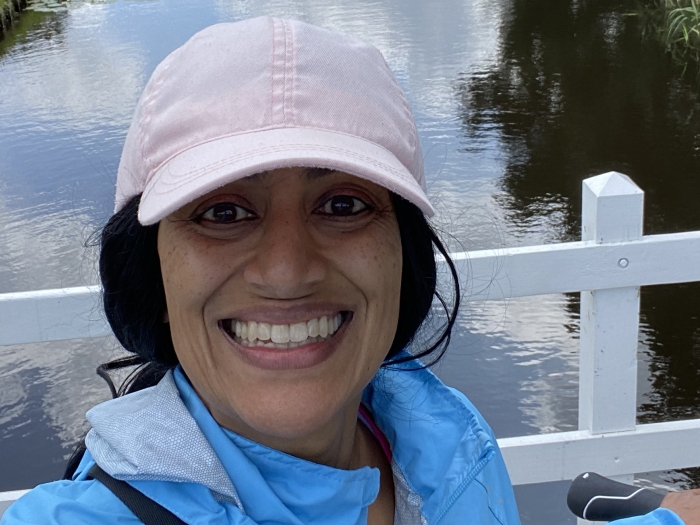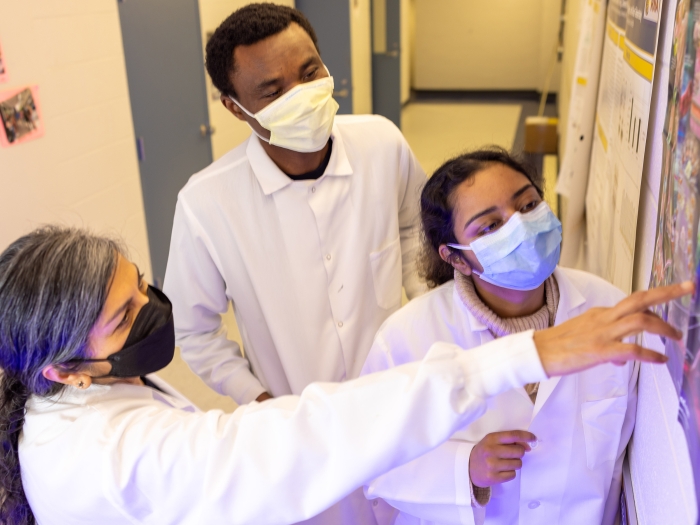At the University of Michigan Medical School, we're cultivating a learning community that engages all in bold and innovative education and research for the advancement of science, health and healthcare delivery. Start your journey today!

All Programs
Browse all our programs, including those for master's, postbac and non-degree students.
More to Explore
Whether you need to find the best place to live to reduce your bus commute, you're curious about interest groups at U-M, or you just want to learn more about Ann Arbor, this guide will help!

Points of Blue
Anita Valanju Shelgikar (she/her/hers), MD, MHPE, is a professor of neurology at the University of Michigan Medical School and the director of the sleep medicine fellowship at Michigan Medicine.

Medical School News
Four with Medical School ties are among 12 University of Michigan faculty and staff members recognized by the American Association for the Advancement of Science (AAAS) as 2023 fellows in recognition of their extraordinary achievements.

Medical School News
Four faculty and two staff members from the departments of Anesthesiology, Neurology, Radiology and Surgery, and the Office of Graduate Medical Education (GME), are recipients of GME Awards for 2024

Medical School News
The Medical School will showcase ongoing efforts to achieve carbon neutrality by hosting activities that coincide with Earth Day on April 22, as well as Earth Week from April 22-26.

Medical School News
Eric S. Holmboe, M.D., president and chief executive officer for Intealth, will deliver the James O. Woolliscroft, M.D. Endowed Lecture in Medical Education from 5-6 p.m. on April 30 in the Danto Auditorium of the Frankel Cardiovascular Center. The Grand Rounds presentation is open to the entire Michigan Medicine community, as well as faculty, staff and learners from the U-M’s other health sciences schools

Medical School News
There are many intriguing aspects to the honor of a faculty member holding a named professorship in the University of Michigan Medical School: the excitement of receiving one of the highest honors the U-M can bestow on a faculty member; an understanding of the rich history of the person(s) for whom their professorship is named; and the flexibility of what the professorship allows the holders to do during their career. On April 1, the Medical School hosted a celebration of faculty who were appointed to named professorships in 2023.